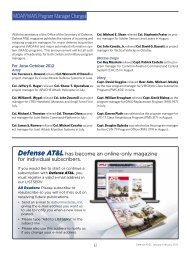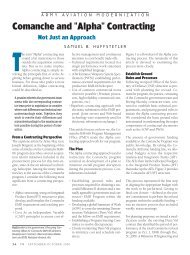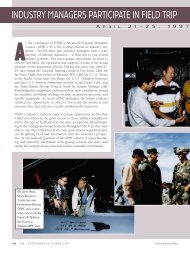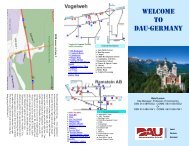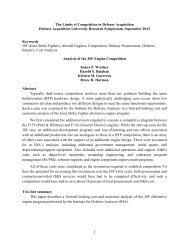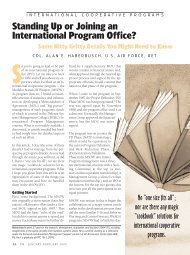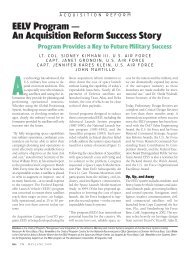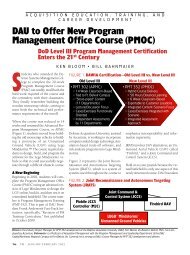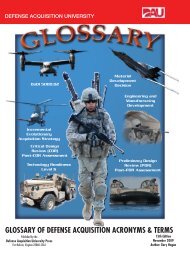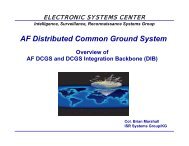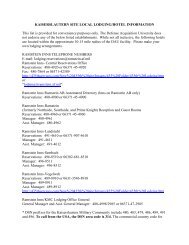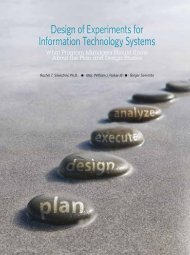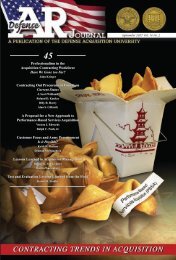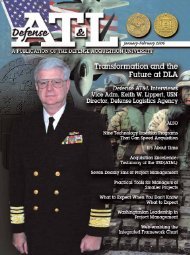Defense ARJ - Defense Acquisition University
Defense ARJ - Defense Acquisition University
Defense ARJ - Defense Acquisition University
Create successful ePaper yourself
Turn your PDF publications into a flip-book with our unique Google optimized e-Paper software.
<strong>Defense</strong> <strong>Acquisition</strong> Review Journal<br />
codified by Cartesian laws and rules and the PPBE process (such as exemplified by<br />
the Government Performance and Results Act of 1993) (Roberts, 2000).<br />
Such a transformation would constitute a real paradigm shift (Kuhn, 1996)<br />
toward rewarding exploration and learning (i.e., “the creation of knowledge and<br />
meaning”) (Kolb, 1984, p. 52) and realizing that today’s success may be ephemeral as<br />
the environment continues to be hyperturbulent and as operating systems go through<br />
space and time in unpredictable trajectories. Together, DoD professionals and their<br />
client community in short should dialogue to find ways to deemphasize the PPB in<br />
PPBE and be attentive to learning while executing to develop the force with all participants<br />
engaging in sensemaking. Perhaps the supplemental appropriations based on<br />
the needs of today will become the appropriation methodology of the future, where<br />
neither the Congress nor the President will expect the DoD to perform its rain dance<br />
of PPBE.<br />
leaD-inG<br />
To achieve maximum participation, the concept of hierarchical authority must<br />
transform more toward heterarchical leadership, characterized less by symbols of<br />
rank and position and more by the quality of sensemaking and ability to communicate<br />
to others new ways to pay attention to emergent patterns and embrace the inevitability<br />
of surprises. Investing in the ability of a heterarchical organization to be sensitive<br />
to weak signals of emergent patterns in the COE is superior to allocating resources<br />
based on the weak attention span of those at the top of the hierarchy who must admit<br />
that they cannot create very effective hyper-adaptive means by processing cycles of<br />
planning, programming, or budgeting (Schön, 1983; Argyris, 1991). A prominent<br />
characteristic of complex sensemaking is less reliance on hierarchical decision making<br />
and more deference to sharing and developing expertise in others (Heifetz, 1994;<br />
Weick & Sutcliffe, 2001) and to those who are artful framers of reality (Schön, 1983).<br />
The paradox is that experience alone is no guarantee of expertness and that experienced<br />
people may be trapped in dysfunctional cultural patterns of repeating what has<br />
worked in the past—the tyranny of success in the context of a hyperturbulent environment.<br />
Under the rubric of sensemaking, authority is, by design, given to the people<br />
164<br />
The paradox is that experience alone is no guarantee of<br />
expertness and that experienced people may be trapped<br />
in dysfunctional cultural patterns of repeating what has<br />
worked in the past—the tyranny of success in the context of<br />
a hyperturbulent environment.



